The Right Baiyanggou
Tuesday, August 17th, 2010 in: News
The man with the golf cart asked for 20 RMB each for a ride back to the entrance, but when we started to walk he quickly dropped to 30 for the both of us. I wasn’t sure what lay ahead for us, so I was grateful for the respite as he shot down the road, shaving a lot of time and effort off our backs, and a bus going back to Urumqi was waiting for us near the yurts, where obvious tourists were milling around in high heels and tight jeans, looking very out of place in contrast to the local conservative, practical attire.
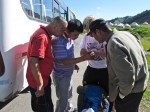 We were hoping we could hire a car to take us to the exact spot we wanted, but there were none to be had. Three Kazakhs huddled around Dan as he tried to explain where we wanted to go, pointing out the dots on his iPhone. It seems the reason maps are so hard to come by in China is that no one here can actually read a map: there’s just no concept of relative spacial relationships, everyone just navigates by landmark or goes where they’re told. “It boggles the mind,” Dan once said, “back home you’d never find a cabbie who didn’t have a map in his glove box, in case they don’t know the way to where you want to go. Here, you’d never find one WITH a map; they’d sooner just tell you the place you’re looking for doesn’t exist, or just drive off in some random direction and take you to the wrong place.
We were hoping we could hire a car to take us to the exact spot we wanted, but there were none to be had. Three Kazakhs huddled around Dan as he tried to explain where we wanted to go, pointing out the dots on his iPhone. It seems the reason maps are so hard to come by in China is that no one here can actually read a map: there’s just no concept of relative spacial relationships, everyone just navigates by landmark or goes where they’re told. “It boggles the mind,” Dan once said, “back home you’d never find a cabbie who didn’t have a map in his glove box, in case they don’t know the way to where you want to go. Here, you’d never find one WITH a map; they’d sooner just tell you the place you’re looking for doesn’t exist, or just drive off in some random direction and take you to the wrong place.
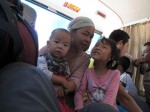 Our attempts to convey our destination proved fruitless, so we got on the bus headed back toward Urumqi. There was only one other passenger at first, but the bus slowly filled beyond capacity as we picked up people along the way. A Uighyr mother sat opposite us with her two young kids who took turns staring and making faces at us. We responded in kind.
Our attempts to convey our destination proved fruitless, so we got on the bus headed back toward Urumqi. There was only one other passenger at first, but the bus slowly filled beyond capacity as we picked up people along the way. A Uighyr mother sat opposite us with her two young kids who took turns staring and making faces at us. We responded in kind.
As we approached Urumqi, the desert landscape slowly gave way to signs of industry. Dan nudged me and suggested we “xia che” before we get all the way back to the bus station in the city. We tumbled out of the bus onto a dusty street and started trying to wave down cabs. A shiny new Toyota rolled up, and we explained to the Kazakh guy where we wanted to go. We used the lake near our turnoff as a landmark, but despite our relatively equal Chinese abilities, he didn’t quite understand that we wanted to go to a place nearby, but NOT the lake. He parked the car and walked us to a local clinic where his sister was sitting in a waiting room with IVs hanging from the ceiling. She spoke a little English and it became apparent that the guy was just in town to pick his sister up and thought he could make some extra cash by offering us a ride. The 150 he originally quoted us shot up to 300, and although we countered with 200. Every mention of Chaiwupu (the lake) or Baiyanggou village stretched the distance in their minds, making them increase their already unreasonable demands. Desperate to get to our destination by a reasonable hour, we settled for 250 and set off.
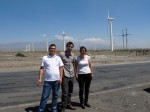 The siblings were friendly enough, putting on some techno music with English lyrics for us, chatting about this and that. The brother never broke 50km/hr, and I wasn’t sure if it was because he was being cautious with his new car, or if he wanted to make the journey seem longer to justify the hefty price we’d agreed to. Dan and I closely watched the GPS on his phone, and had to correct them several times to get them on the right road. It was practically impossible to get on the highway, but we found a road that ran alongside it towards the lake. When we were within sight of Chaiwupu, they excitedly repeated the name five or six times, as if we had arrived at our destination. “No, we told you so many times, we need to turn left here. We are NOT going to the lake.” Every time we mentioned this it was as if it were the first time. Our frustration mounted as we passed a sign marking the road we need to turn onto, clearly saying Baiyanggou village. “There it is! Turn left here! Baiyanggou village!”
The siblings were friendly enough, putting on some techno music with English lyrics for us, chatting about this and that. The brother never broke 50km/hr, and I wasn’t sure if it was because he was being cautious with his new car, or if he wanted to make the journey seem longer to justify the hefty price we’d agreed to. Dan and I closely watched the GPS on his phone, and had to correct them several times to get them on the right road. It was practically impossible to get on the highway, but we found a road that ran alongside it towards the lake. When we were within sight of Chaiwupu, they excitedly repeated the name five or six times, as if we had arrived at our destination. “No, we told you so many times, we need to turn left here. We are NOT going to the lake.” Every time we mentioned this it was as if it were the first time. Our frustration mounted as we passed a sign marking the road we need to turn onto, clearly saying Baiyanggou village. “There it is! Turn left here! Baiyanggou village!”
“Baiyanggou? That’s way far from here!”
“NO, NOT THAT BAIYANGGOU! We told you there are TWO, this one is 很近!”
Nevertheless, he pulled to the side of the road to ask some old people milling around. They were standing NEXT to the sign, and still didn’t know what place we were talking about. We had to take charge.
“Look, we know where this place is. Just go straight down this road. We’ll direct you, just drive.”
And once again, we were off.
The road was mostly fresh pavement cutting through a desert that reminded me of Death Valley in California, except for the occasional herd of camels we passed. A couple rough off-road detours made our drivers a little nervous, and we had to offer them another 50 kuai to keep going. As we slowly crept up the valley, we could sense that we were getting close to the end of our ride. When we saw the rock quarry we’d spotted on google maps, we told them we could get out there.
“If you ever come back to Xinjiang, you are welcome at my family’s,” the sister assured us. We took some photos together and bid them farewell. I was somewhat perturbed that we had spent about twice as much as we probably should have, but I was also relieved to have actually gotten to the place we wanted, considering how difficult it was to convey our intentions. The last stretch of road was rather nerve-wracking, as I half expected them to kick us out when the road got rough again.
Finally on our feet again, Dan and I took in the view. Far in the distance, we could see the mountain pass we had set our hearts on. We had a long way to go, and from the looks of it, a lot of altitude to climb. Despite the harrowing journey that brought us to the base of the quarry, our real trek had just begun.
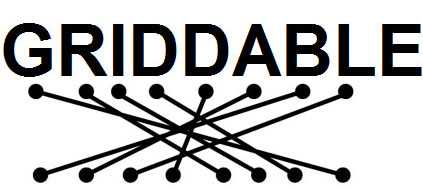
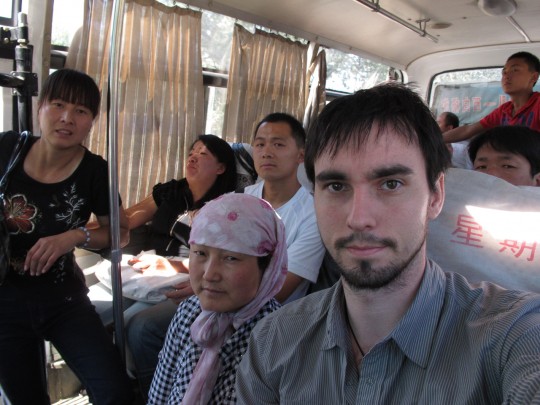

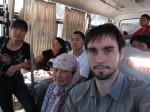
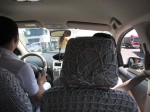



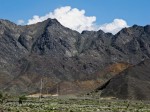
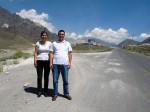

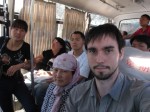







Leave a Reply